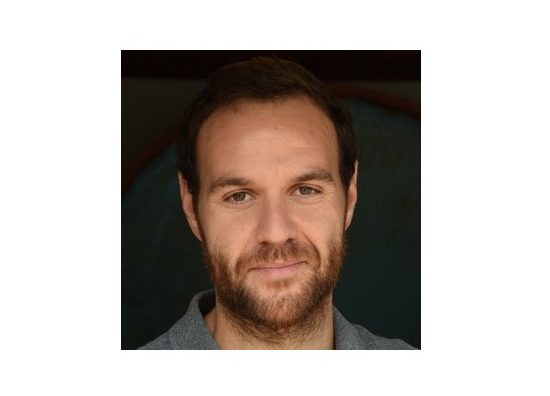
Mykolas Romeris University (MRU) Environmental Management LAB researcher Miguel Inácio lives in Germany and divides his time between home office work in Rostock and on site at MRU Vilnius. He has been living in Germany since 2015. Inácio came to Lithuania for the first time almost a decade ago and says both countries have advantages and disadvantages. He notes that Lithuanians are more welcoming to foreigners than Germans and discusses his research focusing on ecosystem services assessment and mapping in Lithuania.
-When did you first come to Lithuania?
I came to Lithuania for the first time in 2013. I was an Erasmus student at Klaipėda University. After completing my Master‘s Degree studies at the University of Ghent in Belgium, I decided to return to Lithuania to pursue doctoral studies. I completed my PhD on Ecology and Environmental Sciences at Klaipėda University. My dissertation was: “Ecosystem Services of Coastal Water Bodies: Assessing Temporal Changes and their Implications to Management.
The topic was related to the assessment of ecosystem services in several bodies of water in the southern Baltic Sea. I had several case studies from Germany, Poland and in Lithuania – the Curonian Lagoon.
-What is your primary area of research at the MRU Environmental LAB headed by Prof. Paulo Pereira?
At the MRU Environmental Management LAB, among other tasks related to spatial analysis and planning, my research's primary focus is on ecosystem services assessment and mapping in Lithuania.
- How long have you been conducting research at the MRU Environmental LAB?
I joined the LAB in 2019 to work as a marine expert in the Lithuanian National Ecosystem Services Assessment and Mapping project. I am a Marine Biologist by training, so my expertise is more targeted to the marine and coastal environment. However, since joining the LAB, my research horizons have expanded, and I am now conducting research on terrestrial and freshwater ecosystems. Currently, I am doing a Postdoc at the LAB related to assessing and mapping ecosystem services in Lithuanian lakes.
-Are you also conducting research in Germany or elsewhere in the EU? If so, where? What topics?
I am not conducting research in Germany at the moment, but I have been working there during my PhD at the Leibniz Institute for Baltic Sea Research. However, I am collaborating with researchers, for example, in Portugal, on topics common to what we research at the Environmental Management LAB.
-How much time do you spend at the MRU LAB in Vilnius, 6 months?
Well, it depends very much on the workload that we have. In general, I try to come often, and I would say more or less four months per year or so.
-Which projects of the LAB, (or others), are you participating in?
At the moment, besides my Postdoc LACLAN, I am working on the projects ERASMUS+ CLIMAN, HORIZON SELINA and a project related to National Parks in Lithuania from the Ministry of Environment.
You live in Germany, work in Lithuania. What differences do you see between the 2 countries?
I have been living in Germany since 2015. I think both countries have advantages and disadvantages. I think people here (Lithuania) are warmer and more welcoming than in Germany. In Germany, it is hard to integrate as a foreigner. There (in Germany), science and education are better funded, so people from academia have good opportunities. In Lithuania, this aspect is improving, but there is still lots of work. Nevertheless, there are good opportunities like PhD and Postdoc funding from the government. Besides this, life-wise, I would say that Lithuanians are more relaxed than Germans, and for me this makes a big difference.
-Before coming to Lithuania, what did you know about this country, Vilnius, if anything?
One of the main reasons I chose to do an Erasmus semester in Klaipėda University during my Master's was that I did not know much about the country. Portugal and Lithuania are in different parts of Europe, (West and East). We do not know much about Lithuania in Portugal, especially in 2013. I came, and I have to say I loved it here in Lithuania. I came still in the time of the Litas currency, so I still had that experience.
-What surprised you after coming to Vilnius – culturally, architecturally or otherwise?
During my stay in Klaipėda, I visited Vilnius, which is very different from the type of cities we have in Portugal. It is different in architecture. I was surprised and enchanted by the Vilnius Old Town cultural life. When I see Vilnius now, almost ten years after, I see a much more international, multicultural, and relaxed environment. It‘s an European capital with lots of things to do, new things to try, and people to meet. A very positive change. I do not feel a foreigner at all, and there is no language barrier since everyone speaks excellent English overall in Vilnius.
-Do you plan to work in the future full-time at the MRU Environmental LAB, onsite here in Vilnius?
It is a possibility that I do not discard. I like the country, Vilnius and the LAB and I have very good friends and a social network there.